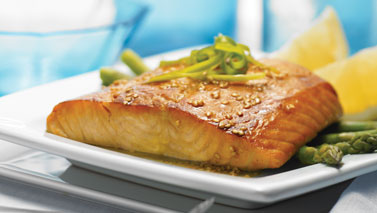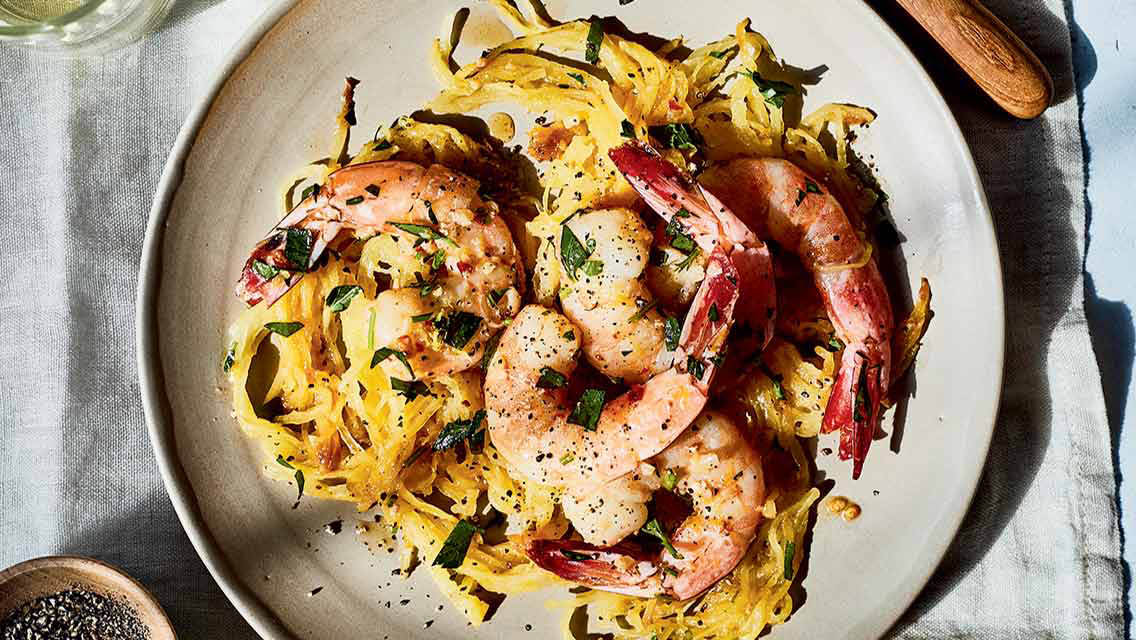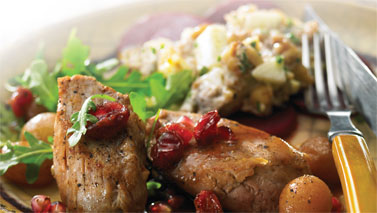Back in the 1970s, the biggest problem with American homemade dinners seemed to be that we lacked easy access to both the great ingredients and the basic skills necessary to make food of European quality. Then, Jacques Pépin came to the rescue, publishing his classic cookbooks, such as La Methode, and demonstrating on some of the earliest public television cooking shows just how easy making real food could be.
Thirty years later, our anxieties have changed. Now, our bigger worry is that our demanding career schedules will prevent us from making dinner of any kind. But Pépin is back to help with this one, too! His latest book, Fast Food My Way, is a revelation for anyone who wants to get dinner on the table fast, but who also has high standards of taste. Pépin’s secret? Cooking smarter, not harder.
Delegate the Prep Work
Pépin, dean at the French Culinary Institute in New York City, is a master at creatively applying classic French techniques in his cooking. Some of his favored tactics include using vinaigrettes or marinades to elevate simple foods, and tastefully deploying high-power ingredients like Japanese mirin wine or a bit of good cheese to make healthy, basic foods really sing. When he needs to take shortcuts, he makes sure they’re smart ones, like taking advantage of the salad bars present in so many of today’s better groceries, for instance.
“In Fast Food My Way, I use the supermarket as my prep cook,” says Pépin. “When you’re a chef in a kitchen, you have the prep cook who comes in early and slices the mushrooms, bones out the fish, washes the spinach, and so forth. Nothing is cooked. But then you come in, you grab a fillet, put it in the skillet with some wine and such, and in two or three minutes you have a beautiful dinner.” A good supermarket, says Pépin, can do all the work of a good prep cook, leaving you in the role of star chef.
“The supermarkets in America have never been as beautiful as they are now,” Pépin remarks. “When I first came here, the choice for salad in the supermarket was often iceberg lettuce or nothing. Now there are a dozen sorts of lettuce, greens and herbs.” Good olives (often found in salad bars), good cheeses, fresh salsas, precut mushrooms, prewashed lettuce, cleaned seafood, and filleted meats and poultry are available in most better markets these days. And once you have access to great, easy ingredients, the only thing separating you from a great dinner is technique. That’s where Pépin comes in.
Learn the Basics
“Basic techniques and basic skills, these are the foundation of everything I do,” Pépin explains. “They are the techniques we teach at the French Culinary Institute, and for a professional chef, they are everything. For a home cook, however, basic skills are just as important, because they are what take the drudgery out of cooking.”
Basic skills like what? Like making sure that the marinade for your salmon (a rich, sweet fish) has the other three basic tastes: sour, salty and spicy. Or like searing fish in a hot pan, and then covering the pan to ensure that the fish steams in its marinade, instead of drying out.
Both of these techniques are exemplified in Pépin’s Glazed Salmon in Mirin and his recipe for Instant Vegetable Soup (below), in which fresh, just-shredded vegetables are transformed into a delicate soup in the blink of an eye – simply by boiling them quickly in water and adding a tablespoon or two of grated Gruyère cheese just before serving.
This minimalist recipe is a perfect example of how a bit of basic kitchen skill (in this case, the knowledge that the fresh, clear flavors of certain vegetables will be enhanced by deeper ones, such as aged, nutty Gruyère) can help a busy home chef create quick, everyday dinners that are not just healthy, but delicious.
Speaking of everyday dinners, I made a point of asking Pépin about that troubling dilemma of our time – namely, the fact that our demanding schedules are keeping a great many of us away from our kitchens. Are work and life really so at odds?
Not entirely, Pépin told me. “When I was a kid, an apprentice in the kitchen, if we wanted to roast a chicken, even if we didn’t have to catch it and kill it, we certainly had to eviscerate it, pluck it, and put wood and coal in the stove to cook it. Roasting a chicken was a major thing. Today, you can take a skinless, boneless breast of chicken, farro [a spelt-like grain] from the supermarket, spinach, perhaps, and in 20 minutes, you have a dish that you cooked from scratch.”
In other words, every generation has its challenges and its blessings. In the 1970s, people had more time to cook, but access to great ingredients was not as good. Today, we have the ingredients, but less time. The key to the eternal struggle of balancing work and life might just be to learn the skills that the age calls for – and if all else fails, consult Jacques Pépin.
Glazed Salmon in Mirin
Makes four servings
Marinade
- 1 1/2 tbs. mirin
- 1 tbs. soy sauce
- 1 tsp. brown sugar
- 1 tsp. Tabasco sauce
- 4 salmon steaks (each 5 to 6 ounces and about 1 inch thick)
Lemon Dressing
- 2 tbs. extra-virgin olive oil
- 1 tbs. fresh lemon juice
- 1 tsp. dark (Asian) sesame oil
- 1/4 tsp. salt
- 1/4 tsp. Tabasco sauce
- 2 tsp. sesame seeds, toasted in a nonstick skillet
For the marinade and fish: Combine all the marinade ingredients in a small bowl. Pour the marinade into a plastic zipper-lock bag. Put the salmon steaks into the bag, seal it, and marinate the steaks in the refrigerator for at least an hour.
For the dressing: When ready to cook the salmon, whisk all the ingredients (except seeds) together in a small bowl until combined, then set aside.
- Heat a large nonstick skillet until hot. Remove the salmon steaks from the marinade and arrange them in the hot skillet with the marinade on top. Cover and cook over medium to high heat for about two minutes, or until the bottoms of the steaks are nicely browned and the tops are cooked through from the steam created in the covered pan. The steaks should be slightly rare in the center.
- Serve the salmon steaks with the lemon dressing drizzled over and around them and sesame seeds sprinkled on top. Make ahead: For this fast, easy recipe, the salmon can be marinated in the refrigerator overnight.
Note: Mirin, a Japanese rice wine with a slightly sweet flavor, can be found in many supermarkets, Asian stores and specialty shops.
Instant Vegetable Soup
Four servings
Ingredients
- 5 cups water
- 1 1/2 cups shredded zucchini (about half a zucchini)
- 1 cup shredded peeled carrot (about one carrot)
- 1 cup shredded onion (one medium onion)
- 1 cup shredded white button mushrooms (two to four mushrooms)
- 1/3 cup minced scallions (about three scallions)
- 2 cups (loosely packed) coarsely chopped salad greens
- 1 tsp. salt
- 3 tbs. instant grits
- 4 tsp. unsalted butter or olive oil
- 1 cup shredded Swiss (Gruyère) cheese
Directions
- Bring the water to a boil in a large saucepan. Add all the vegetables to the boiling water along with the salt.
- Bring the soup back to a boil and boil, uncovered, for two to three minutes.
- Sprinkle the grits on top of the soup, reduce the heat to low, and cook gently for two to three minutes longer. (You will have about 6 cups.)
- Serve hot in soup bowls, spooning about 1 teaspoon of the olive oil or butter on each serving and topping each of the bowls with a few generous tablespoonfuls of the cheese.
Recipes excerpted from Fast Food My Way by Jacques Pépin (Houghton Mifflin, 2004).
This article originally appeared as “Right on Schedule.”




This Post Has 0 Comments